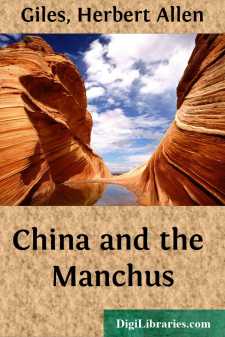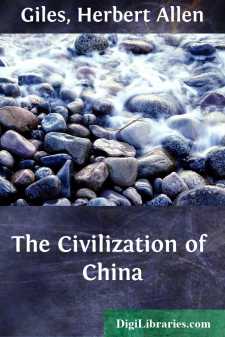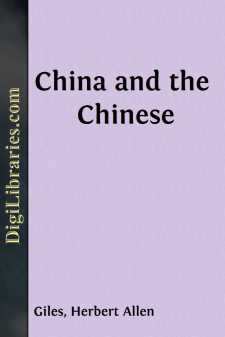Categories
- Antiques & Collectibles 13
- Architecture 36
- Art 48
- Bibles 22
- Biography & Autobiography 813
- Body, Mind & Spirit 141
- Business & Economics 28
- Children's Books 12
- Children's Fiction 9
- Computers 4
- Cooking 94
- Crafts & Hobbies 4
- Drama 346
- Education 46
- Family & Relationships 57
- Fiction 11826
- Games 19
- Gardening 17
- Health & Fitness 34
- History 1377
- House & Home 1
- Humor 147
- Juvenile Fiction 1873
- Juvenile Nonfiction 202
- Language Arts & Disciplines 88
- Law 16
- Literary Collections 686
- Literary Criticism 179
- Mathematics 13
- Medical 41
- Music 40
- Nature 179
- Non-Classifiable 1768
- Performing Arts 7
- Periodicals 1453
- Philosophy 64
- Photography 2
- Poetry 896
- Political Science 203
- Psychology 42
- Reference 154
- Religion 513
- Science 126
- Self-Help 83
- Social Science 81
- Sports & Recreation 34
- Study Aids 3
- Technology & Engineering 59
- Transportation 23
- Travel 463
- True Crime 29
Herbert Allen Giles
Herbert Allen Giles (1845–1935) was a British sinologist, diplomat, and translator renowned for his contributions to the study and understanding of Chinese language and culture. He served as a British consular officer in China, which provided him with deep insights into Chinese society and literature. Giles is best known for his work on the "Wade-Giles" romanization system for Mandarin Chinese, which was widely used before the adoption of Pinyin. Additionally, he translated many classical Chinese texts into English, including Confucian works, thereby making Chinese philosophy and literature accessible to the Western world.
Author's Books:
Sort by:
CHAPTER I—THE NÜ-CHÊNS AND KITANS The Manchus are descended from a branch of certain wild Tungusic nomads, who were known in the ninth century as the Nü-chêns, a name which has been said to mean "west of the sea." The cradle of their race lay at the base of the Ever-White Mountains, due north of Korea, and was fertilised by the head waters of the Yalu River. In an illustrated Chinese work...
more...
THE DEATH OF AN EMPEROR His Imperial Majesty, Tsai-Shun, deputed by Heaven to reign over all within the four seas, expired on the evening of Tuesday the 13th January 1875, aged eighteen years and nine months. He was erroneously known to foreigners as the Emperor T'ung Chih; but T'ung Chih was merely the style of his reign, adopted in order that the people should not profane by vulgar...
more...
CHAPTER I—THE FEUDAL AGE It is a very common thing now-a-days to meet people who are going to "China," which can be reached by the Siberian railway in fourteen or fifteen days. This brings us at once to the question—What is meant by the term China? Taken in its widest sense, the term includes Mongolia, Manchuria, Eastern Turkestan, Tibet, and the Eighteen Provinces, the whole being...
more...
CHAPTER I — THE ANCIENT FAITH Philosophical Theory of the Universe.—The problem of the universe has never offered the slightest difficulty to Chinese philosophers. Before the beginning of all things, there was Nothing. In the lapse of ages Nothing coalesced into Unity, the Great Monad. After more ages, the Great Monad separated into Duality, the Male and Female Principles in nature; and then, by a...
more...
CHINA AND THE CHINESE THE CHINESE LANGUAGE If the Chinese people were to file one by one past a given point, the interesting procession would never come to an end. Before the last man of those living to-day had gone by, another and a new generation would have grown up, and so on for ever and ever. The importance, as a factor in the sum of human affairs, of this vast nation,—of its language, of its...
more...






